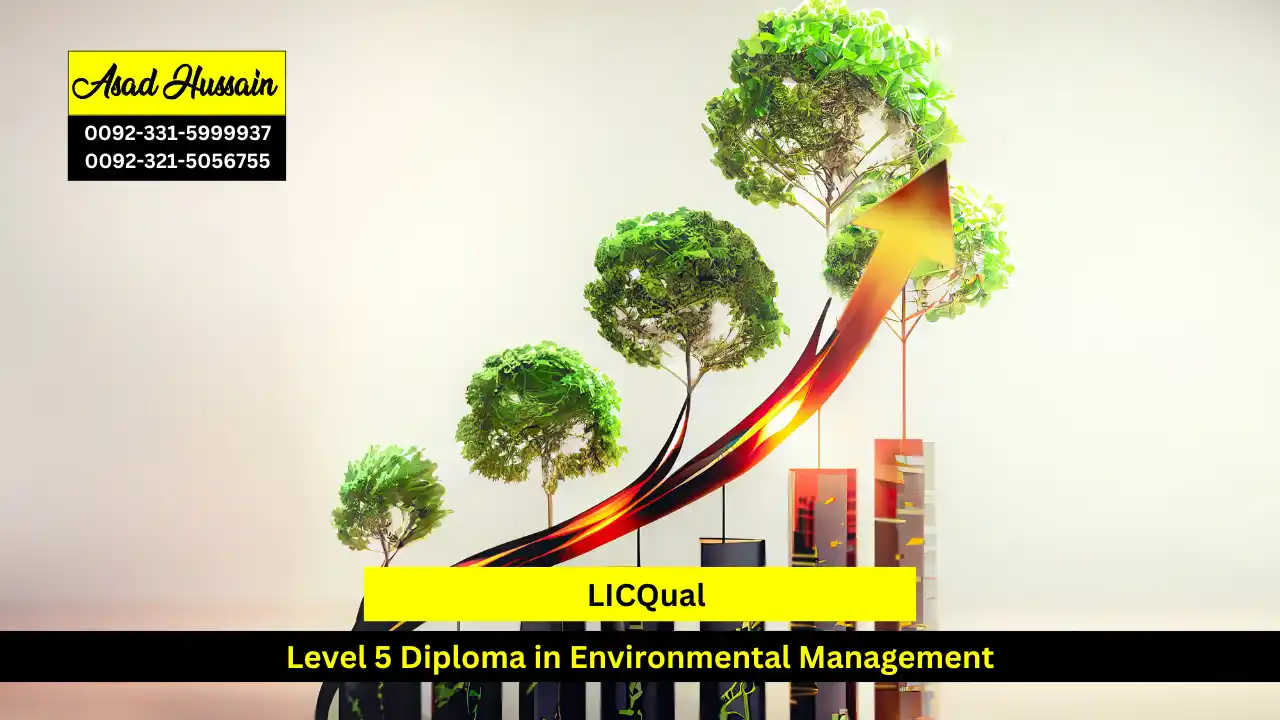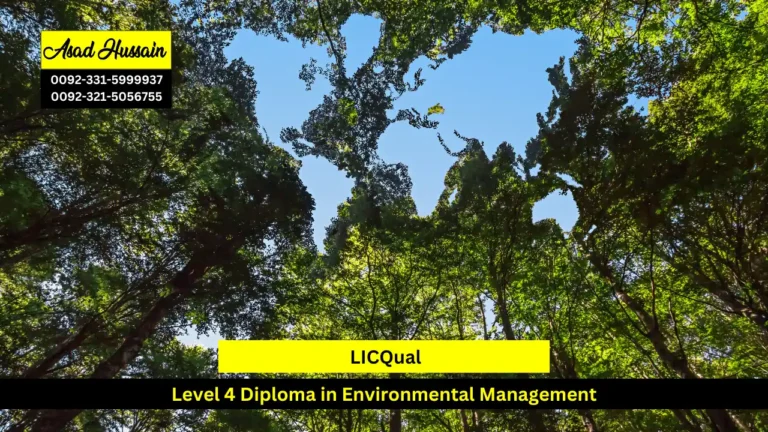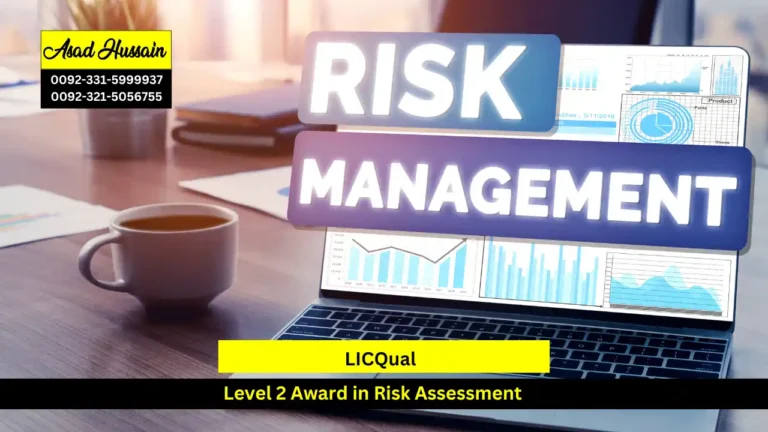In a world increasingly focused on environmental conservation and sustainable practices, the need for skilled professionals in environmental management has never been more critical. The Level 5 Diploma in Environmental Management offers a comprehensive pathway for individuals looking to make a tangible difference in how businesses and organizations approach environmental challenges. This blog post delves into what the diploma entails, its benefits, and why it’s a pivotal qualification in today’s environmental landscape.
The Level 5 Diploma in Environmental Management is designed to equip students with the knowledge, skills, and practical expertise necessary to effectively manage environmental issues within various sectors. From understanding environmental policies and regulations to implementing sustainable practices and strategies, this diploma covers a broad spectrum of topics crucial for addressing today’s environmental challenges.
The Level 5 Diploma in Environmental Management is a gateway for individuals committed to making a positive environmental impact. By equipping students with comprehensive knowledge, practical skills, and a global perspective, this diploma prepares them to tackle environmental challenges with confidence and innovation. Whether you aspire to lead sustainability efforts within a corporation, advise governments on environmental policies, or drive community-based conservation initiatives, the Level 5 Diploma empowers you to become a catalyst for positive change in the environmental sector. Embrace the opportunity to shape a sustainable future with the Level 5 Diploma in Environmental Management.
Program Highlights
Mandatory Units
- Unit 1. Environmental Management.
- Unit 2. Global Environmental Issues
- Unit 3. Environmental Law
- Unit 4. Environmental Policy
- Unit 5. Research Design and Methodology
- Unit 6. Freshwater Ecology
- Unit 7. Conservation Biology
- Unit 8. Geographic Information Systems
- The entry requirements for the Level 5 Diploma in Environmental Management may vary depending on the educational institution offering the program. Generally, candidates are expected to meet the following criteria:
- Educational Background:
- A minimum of a Level 3 qualification (such as A-levels or equivalent) is typically required. Some institutions may accept candidates with relevant work experience in lieu of formal qualifications.
- Basic proficiency in English language is often necessary, demonstrated through standardized tests like IELTS or equivalent, especially for international students.
- Work Experience:
- While not always mandatory, relevant work experience in environmental management, sustainability, or a related field can strengthen an applicant’s candidacy.
- Applicants with practical experience in environmental science, ecology, conservation, or regulatory compliance may be preferred.
- Specific Skills and Attributes:
- Strong analytical skills and an aptitude for problem-solving are valuable, given the complex nature of environmental management issues.
- Effective communication skills, both written and verbal, are important for engaging with stakeholders and presenting findings and recommendations.
- Personal Statement or Interview:
- Some institutions may require applicants to submit a personal statement outlining their motivation for pursuing the diploma and detailing relevant experience or achievements.
- An interview may be conducted to assess the applicant’s suitability for the program, including their commitment to environmental sustainability and their understanding of the field.
- Additional Requirements:
- Depending on the institution, applicants may need to provide references from previous academic or professional engagements.
- Specific prerequisites related to modules within the diploma program, such as familiarity with environmental legislation or prior coursework in environmental sciences, may be required.
- Prospective students are encouraged to check with the institution offering the Level 5 Diploma in Environmental Management for precise entry requirements and any additional criteria specific to their program. Meeting these requirements ensures that applicants are adequately prepared to succeed in the program and contribute meaningfully to the field of environmental management upon completion.
Environmental Management
- Understanding Environmental Management: Gain a comprehensive understanding of environmental management principles, including sustainability practices, pollution control, and resource management.
- Implementing Environmental Strategies: Develop skills in devising and implementing effective environmental management strategies tailored to diverse organizational and ecological contexts.
- Evaluating Environmental Impact: Learn techniques to assess and mitigate environmental impact through systematic analysis and sustainable practices.
Global Environmental Issues
- Analyzing Global Environmental Challenges: Explore and analyze key global environmental issues such as climate change, biodiversity loss, deforestation, and resource depletion.
- Identifying Interconnections: Understand the interconnected nature of global environmental challenges and their socio-economic implications on local and global scales.
- Formulating Sustainable Solutions: Develop strategies to address global environmental issues through international cooperation, policy advocacy, and sustainable development initiatives.
Environmental Law
- Understanding Environmental Legislation: Gain a thorough understanding of national and international environmental laws, regulations, and treaties.
- Applying Legal Frameworks: Learn to apply environmental laws and regulations to address environmental issues, ensure compliance, and promote environmental sustainability.
- Legal Analysis and Compliance: Develop skills in conducting legal analysis related to environmental policies, assessing compliance, and advocating for environmental justice.
Environmental Policy
- Evaluating Environmental Policies: Analyze the development, implementation, and effectiveness of environmental policies at local, national, and global levels.
- Policy Formulation: Gain insights into the process of formulating environmental policies, including stakeholder engagement, policy instruments, and decision-making frameworks.
- Advocacy and Influence: Develop skills in advocating for evidence-based environmental policies and influencing policy changes to achieve sustainability goals.
Research Design and Methodology
- Research Planning: Develop proficiency in designing research projects related to environmental management and sustainability.
- Methodological Approaches: Learn various research methodologies and techniques for data collection, analysis, and interpretation in environmental studies.
- Critical Evaluation: Enhance critical thinking skills to evaluate environmental research findings, draw conclusions, and make informed recommendations for environmental management practices.
Freshwater Ecology
- Understanding Freshwater Ecosystems: Gain knowledge of freshwater ecosystems, including lakes, rivers, and wetlands, and their ecological processes and biodiversity.
- Ecosystem Services: Explore the role of freshwater ecosystems in providing ecosystem services, such as water purification, habitat provision, and flood regulation.
- Conservation Strategies: Learn conservation biology principles and strategies to preserve and restore freshwater ecosystems, mitigate threats, and enhance ecosystem resilience.
Conservation Biology
- Conservation Principles: Understand the principles and goals of conservation biology, including biodiversity conservation, species management, and ecosystem restoration.
- Threat Assessment: Identify threats to biodiversity and ecosystems, including habitat loss, invasive species, climate change, and pollution.
- Conservation Strategies: Develop strategies and interventions for effective conservation planning, sustainable resource management, and biodiversity conservation in diverse ecological settings.
Geographic Information Systems (GIS)
- GIS Fundamentals: Gain proficiency in using Geographic Information Systems (GIS) software and tools for spatial data analysis, mapping, and visualization.
- Spatial Analysis: Learn to apply GIS techniques to analyze environmental data, assess spatial patterns, and make informed decisions for environmental management.
- GIS Applications: Explore applications of GIS in environmental monitoring, habitat mapping, land use planning, and natural resource management.
The Level 5 Diploma in Environmental Management is designed for individuals passionate about environmental conservation and sustainability, seeking to make a meaningful impact in their careers. It is ideal for aspiring environmental managers, sustainability professionals, and conservationists who wish to deepen their understanding of environmental issues, policies, and management strategies. This course is also beneficial for professionals already working in related fields such as environmental science, ecology, or natural resource management, looking to formalize their expertise and advance their careers. Additionally, policymakers, consultants, and educators interested in influencing environmental policies and practices will find this diploma valuable for enhancing their knowledge and skills in environmental law, policy formulation, and research methodologies. Whether you are beginning your journey in environmental management or aiming to specialize further in conservation biology or GIS applications, this course provides a comprehensive framework to excel in the dynamic field of environmental management and sustainability.







